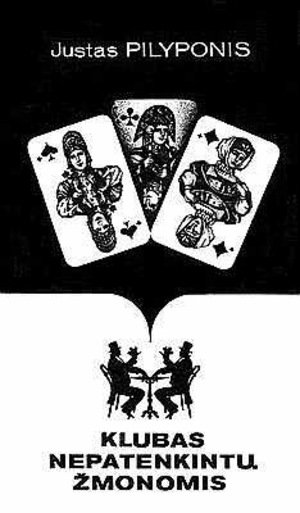ABOUT NON-POPULARITY OF POPULAR LITERATURE II 0
Interview of Mindaugas Grigaitis with the head of the Philosophy and Culture Studies Department of Kaunas University of Technology Doc. Dr. Saulius Keturakiswww.kamane.lt, 2010 05 24
In brief: In the interview Mindaugas Grigaitis and Doc. Dr. Saulius Keturakis discuss the situation of popular literature, evaluation criteria, relation of academic literature criticism and popular literature, history and reasons of present spread of popular literature.
Saulius Keturakis notices that the attitude of Lithuanian literature critics to popular literature is not clear yet. Several announced publications and discussions analysing the problem of popular literature are not sufficient in order to describe the clearer tendencies of evaluation of popular literature.
“I am not sure about the possibility to apply criteria of aesthetical value to popular literature. Popular literature is a phenomenon typical of the society and culture living in conditions of constant tension, when daily life and banality is more frequent than challenges and mobilisation for some targets. Popular literature is entertainment in written form which should be valued as entertainment. Good entertainment is not so bad. Therefore, literature critics should search for criteria adequate to this entertainment spread in written form,” believes S.Keturakis.
When asked about the direction of university studies of popular literature, S.Keturakis notices that the university discipline of popular literature appeared rather late – in the 9th decade of the last century. Only single academics resolved to analyse popular literature and culture elements until then. One of such academics was Marshall McLuhan. In his opinion, the most interesting in these studies would be avant-garde illusions: finding of a clear recipe how to “produce” an artwork.
Speaking about the tendencies of popular literature in the inter-war period, Soviet times and contemporary popular Lithuanian literature, S.Keturakis states that it is hard to speak about history as there are no settled evaluation criteria of popular literature. It is easier to speak about the period of Soviet Lithuania as rather much attention was allocated to popular literature of the Soviet Union in the West.
“Let us say, “The Club of Men Dissatisfied with Wives” of Justinas Pilyponis (1929). Tunnels dug under entire Kaunas, underground halls: everything is made suitable for men to be able to gamble secretly (with faces under masks)… Literature historians distinguish the tradition of detective and science fiction in popular literature of the Soviet Union. Science fiction was extremely popular: there were as many as 600 authors who called themselves science fiction writers in the list of the Soviet Union Writers’ Association in 1975!” the interlocutor states.
He counts 6 authors who wrote science fiction in the Soviet Lithuania (Vladas Minius, Vytautas Norbutas, Banguolis Balaševičius, Loreta Latonaitė, Kazys Paulauskas, Jurga Vikšraitytė). Meanwhile, speaking about contemporary popular literature, S.Keturakis asserts that it is closer to western tradition by themes, female authors writing for women.
The titles of popular literature of inter-war period are intriguing: “Road of Sins: Cross and Snake in the Heart”, “Love of a Prostitute: Novel about Life in Kaunas”. The novel of Jonas Marcinkevičius “At the Abyss: Confession of a Condemned Man” (1931) could be called scandalous even today due to the explicit picturing of masturbation, prostitution, homosexuality. S.Keturakis is asked whether an anthology of popular literature introducing history of such literature would be needed today.
In the opinion of S.Keturakis, it would be a plausible idea as there was no systematic publishing of popular literature of inter-war period without several novels of J. Pilyponis issued in 1990 – 1994.









